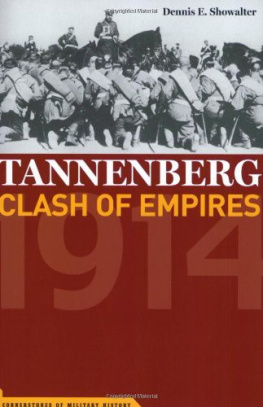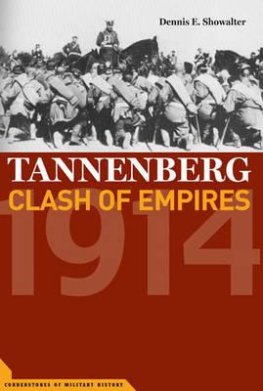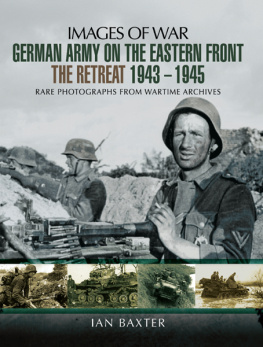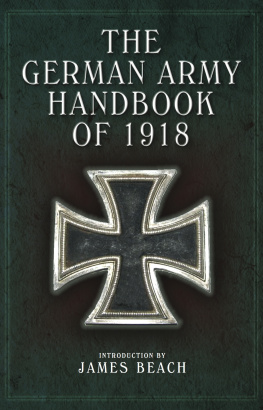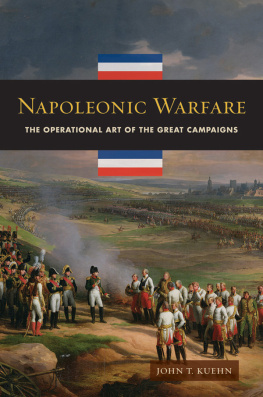Other books by Dennis Showalter:
Railroads and rifles: Soldiers, technology and the unification of Germany
Little Man, What Now?: Der Sturmer in the Weimar Republic
Tannenberg: Clash of Empires, 1914
The Wars of German Unification
Patton and Rommel: Men of War in the Twentieth Century
Hitlers Panzers: The Lightning Attacks that Revolutionized Warfare
Frederick the Great: A Military History
The Wars of Frederick the Great
Armor and Blood: The Battle of Kursk: The Turning Point of World War II
WITH HAROLD C. DEUTSCH
If the Allies Had Fallen: Sixty Alternate Scenarios of World War II

OSPREY PUBLISHING
Bloomsbury Publishing Plc
PO Box 883, Oxford, OX1 9PL, UK
1385 Broadway, 5th Floor, New York, NY 10018, USA
E-mail:
www.ospreypublishing.com
This electronic edition published in 2018 by Bloomsbury Publishing Plc
OSPREY is a trademark of Osprey Publishing Ltd
First published in Great Britain in 2016
Dennis Showalter, 2016
Dennis Showalter has asserted his right under the Copyright, Designs and Patents Act, 1988, to be identified as Author of this work.
For legal purposes the constitute an extension of this copyright page.
All rights reserved
You may not copy, distribute, transmit, reproduce or otherwise make available this publication (or any part of it) in any form, or by any means (including without limitation electronic, digital, optical, mechanical, photocopying, printing, recording or otherwise), without the prior written permission of the publisher. Any person who does any unauthorised act in relation to this publication may be liable to criminal prosecution and civil claims for damages.
A catalogue record for this book is available from the British Library.
ISBN: 978-1-4728-1300-8 (HB)
ISBN: 978-1-4728-2980-1 (PB)
ISBN: 978-1-4728-1301-5 (eBook)
ISBN: 978-1-4728-1302-2 (ePDF)
ISBN: 978-1-4728-2220-8 (XML)
Osprey Publishing supports the Woodland Trust, the UKs leading woodland conservation charity. Between 2014 and 2018 our donations are being spent on their Centenary Woods project in the UK.
To find out more about our authors and books visit www.ospreypublishing.com. Here you will find our full range of publications, as well as exclusive online content, details of forthcoming events and the option to sign up for our newsletters. You can also sign up for Osprey membership, which entitles you to a discount on purchases made through the Osprey site and access to our extensive online image archive.
CONTENTS

INTRODUCTION AND ACKNOWLEDGEMENTS
The Imperial German Army is one of World War Is defining institutions. It is also arguably the most protean: presented from a prism of perspectives that can be as confusing as enlightening. The army is described in social contexts: contributing fundamentally to Germanys development as a militarized state and a militarized culture, with a resulting century of global-scale catastrophes. The army can be depicted in political contexts, as fatally unbalancing an already fragile state system, taking it down the road of military dictatorship in the Great War and eventually guiding it into the Third Reich. The army can be studied as a social institution, analyzing its internal dynamics from the grass roots to the general staff. The German Army can be presented as the other, the opposition to the British, French, and Americans, as mysterious as it was dangerous. Finally, sometimes almost as an afterthought, the German Army can be considered as a fighting force, whose plans, institutions, and fashions were so admired before 1914 that for a while American cavalrymen in remote western outposts turned out for dress parade wearing spiked helmets. And if its combat performance from 1914 to 1918 continues to be trenchantly and appropriately criticized, the German Army is also credited with inflicting a disproportionate number of casualties on the Alliesno small benchmark for a conflict whose memory and mourning is heavily understood in a context of lives lost.
This work seeks to integrate the spectrum of approaches to tell the story of the German Army of 19141918 as an institution: an instrument of war that, in the developing context of a total war, found itself overextended from before the wars beginning. It displayed less a genius for war than a gift for improvisation: meeting unexpected challenges with limited resources, making the best tactically and operationally of questionable strategies and policies until the machine broke down and the men had nothing more to give. In that sense this is less a history than a storyan elegy, perhaps, for an institution that, however dubious might have been its cause, gave the last full measure to attain it.
This work is also intended for general readers. Documentation has been kept to a minimum. The endnotes are generally intended as guides to further reading on particular points and arguments. For the sake of user friendliness, whenever possible I have cited English translations. All the mistakes and misjudgments are my responsibility.
This book has been a long time coming. I am professionally indebted to Osprey for giving me the opportunity. As a boy I put a lot of my discretionary money into Osprey publications, and used to dream of writing for them myself. Well, its never too late to fulfill a dream! I thank particularly Kate Moore for her sharp eyes and endless patience. I owe academic debts as well to Madeleine Engel for her course work on the German treatment of shell shock, and to Christopher Goodwin for his extremely useful Norwich MA thesis on the roots of Prussian masculinity.
It is on the personal side, however, where the debts mount. Kathy Barbier and Paul Thomsen proved time and again that a sympathetic ear on the other end of a phone can be almost as good as an arm across the shoulders. Brandy Lachocki proofread and corrected the manuscript, saving a myriad of grammar errors and typos. And Clara Annethanks as always for everything!
Since coming to Colorado College in 1969, I have amassed an unpayable debt of gratitude to the staff of the library. Diane Armock in particular supplied the endless list of interlibrary loan requests that enabled my research on project after project. And the rest of the staffwhether filling orders, answering questions, or renewing overdue books, have smoothed my path in too many ways to thank. This book is dedicated to all of them, with respect, admiration, and appreciation.

CHAPTER I
PORTENTS AND PRELIMINARIES
In 1898 the Berliner Illustrierte Zeitung, a leading popular magazine, polled its readers on the most significant events and personalities of the last hundred years. The choice of the Nineteenth Centurys greatest thinker was none other than Helmuth von Moltke. In an era of philosophers like Hegel, authors like Tolstoy, and scientists like Darwin, selecting the chief of Prussias Great General Staff in hindsight reads at best like a bad joke. Taken as a meme, it reinforces the familiar image of Imperial Germany as a society comprehensively defined by its military culture, as specifically expressed in the army. When Frank House, US President Woodrow Wilsons advisor, wrote from Berlin in April 1914 of militarism run stark mad, he was not reacting as an innocent abroad. Germanys European neighbors might agree on little else, but by the early Twentieth Century a strong consensus had developed that even by the continents increasingly prevalent, increasingly comprehensive standards of military planning and military posturing, Germany was in a class by itself.




